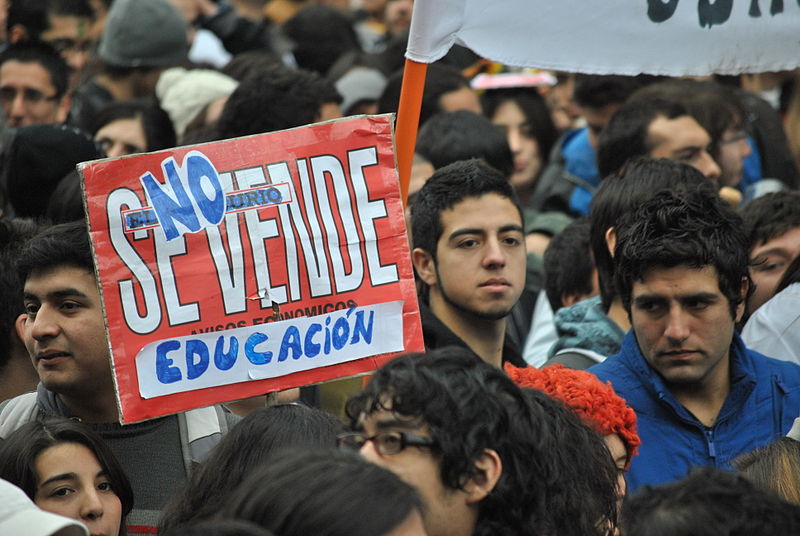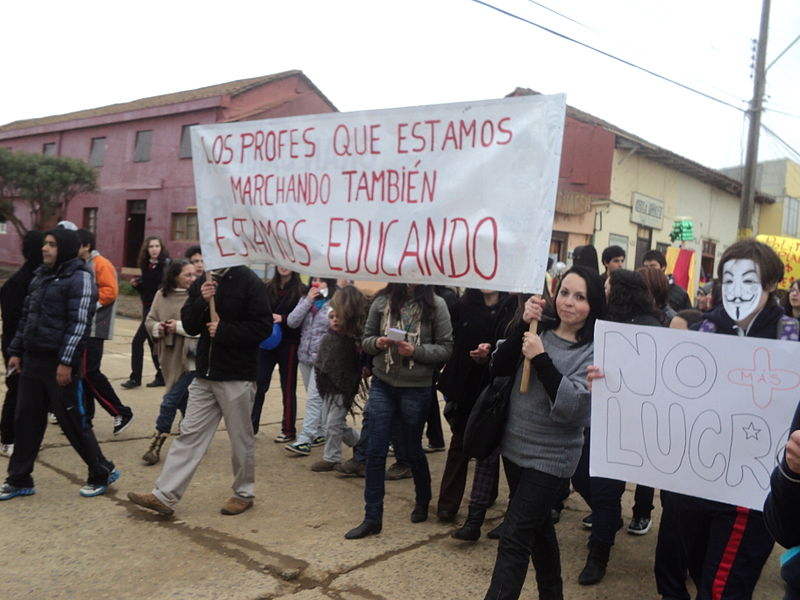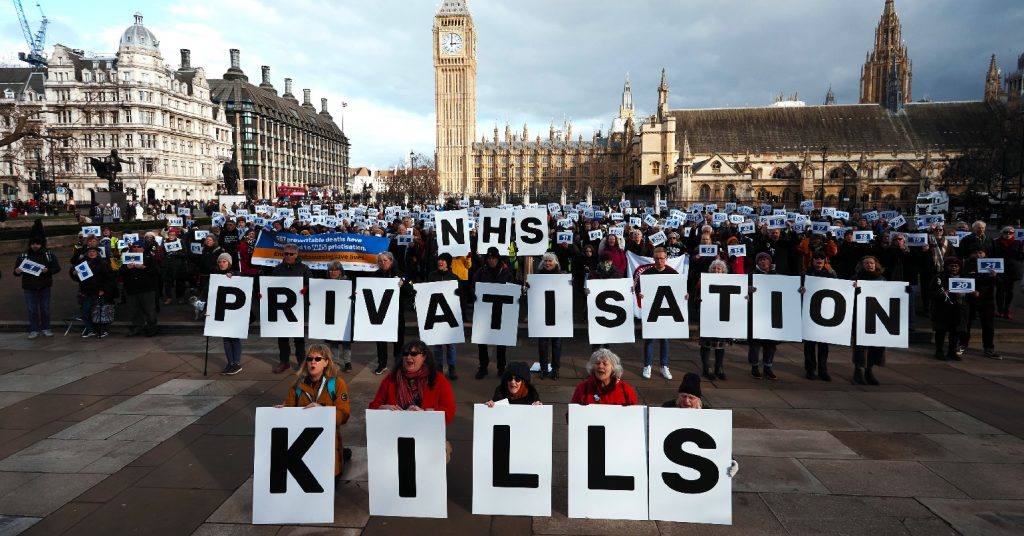Privatisation Reversed? Chile shows the way to reclaim public services
In Chile, a challenge has emerged to the idea that privatisation is permanent. Student led protests and demonstrations have focused on reversing the privatisation of education. Protests in Santiago were staged earlier this month by thousands of students, despite the City government banning demonstrations, and seem set to continue as the popularity of the government collapses.

Civil society and government are locked in a dispute as to what should happen to the education system. The Government wants to raise $1 billion for scholarships and to lower student loan interest rates from 6% to 2%. The opposition wants more money to be raised and for it to be spent on a public system of education, which at 4% of government spending lags behind the 7% for the ‘developed’ world. Critics argue that the current system feeds rising inequality, with only one in ten young people attending a school that provides real opportunity.
The roots of this crisis are from immediately after the 11th September Coup in 1973. General Pinochet began implementation of a radical new economic policy to reverse years of social democratic reforms. With a team of advisors known as the ‘Chicago-Boys’, a 500-page plan known as ‘The Brick’ was implemented in Chile. The main tenets of policy were privatisation, deregulation, and cuts to social spending. This became known as “Shock Therapy” – an experiment to wipe the economic, political, and social slate clean and to create a new society based entirely on market principles and carried out under a military dictatorship.
As detailed in Naomi Klein’s The Shock Doctrine, one of the policies tested in Chile was the abolition of public school. Instead a system of Vouchers for private schools and Charter Schools was established. In the US and UK, we have only just begun this process of education privatisation. Charter Schools in the US and their UK variant, Academies and Free Schools have been gaining traction for over a decade. In the US, in the aftermath of Hurricane Katrina, Milton Friedman suggested that the opportunity be taken in reconstructing New Orleans to abolish public schools and replace them with a system of vouchers and Charter Schools. In the UK, Academies were introduced under Labour and have moved further into the private sector under the Coalition Government through Free Schools.

The introduction of market relations into Universities in the UK from 1999 also mirrors Chile, where the system was privatised in the 1980s. The rise of private universities resulted in a decline in educational standards across public and private universities as profit took the front seat. A ‘public’ university such as the University of Chile received only 14% of its budget from the state. Compared to a 16% average rest of the OECD, Chilean families provided 73% of finance for university.
The idea that privatisation and the introduction of market relations is irreversible derives from some form of ‘modernisation theory‘. In it’s more market-friendly version (aka globalisation), this is the argument that western liberal democracy, culture, and free markets are a universal solvent, dissolving traditions and refashioning societies, states and cultures towards the western model. That once market forces have been unleashed they coil around individuals and institutions, making them a part of the market system and shaping human beings to its ends.
Against the dominant narratives of free markets and limited state intervention, the calls from civil society for public education shows us all that it is possible, even after decades of living with these institutions, to keep resisting privatisation. In Friedman’s own words:
“Only a crisis – actual or perceived – produces real change. When that crisis occurs, the actions that are taken depend on the ideas that are lying around. That, I believe, is our basic function: to develop alternatives to existing policies, to keep them alive and available until the politically impossible becomes politically inevitable.”



Hi, I hate privatization. Our country still has public schools and gov’t paid health care altho the gov’t has privatized lots of other services. The quality goes down as profits become the main target. . . 🙁